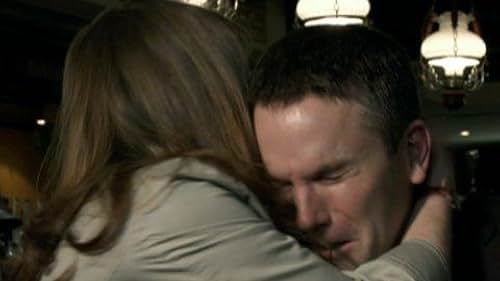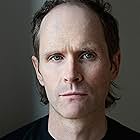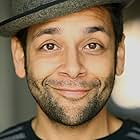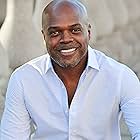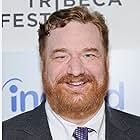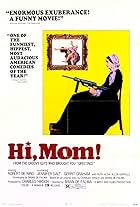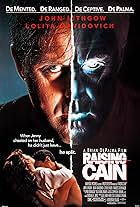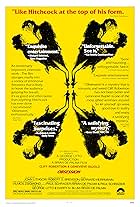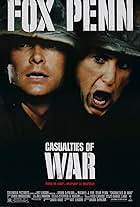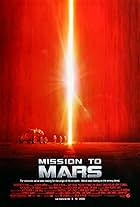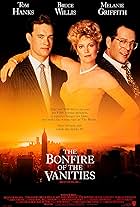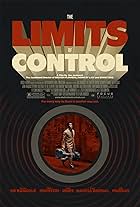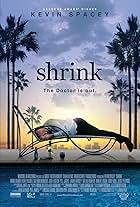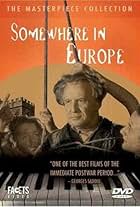The devastating reconstruction of the rape and murder of a 15-year-old Iraqi girl by American soldiers in Samarra in 2006.The devastating reconstruction of the rape and murder of a 15-year-old Iraqi girl by American soldiers in Samarra in 2006.The devastating reconstruction of the rape and murder of a 15-year-old Iraqi girl by American soldiers in Samarra in 2006.
- Awards
- 6 wins & 2 nominations
Anas Wellman
- Soldier
- (as Anas 'Tipsy' Wellman)
Happy Anderson
- Battalion Commander
- (as Eric 'Happy' Anderson)
- …
- Director
- Writer
- All cast & crew
- Production, box office & more at IMDbPro
Storyline
Did you know
- TriviaThe scene where Salazar is smiling as he films a scorpion being devoured by ants is an homage to the beginning of Sam Peckinpah's The Wild Bunch (1969) where a group of children gleefully watch scorpions being eaten by ants .
- GoofsIn one scene, PFC Reno Flake refers to SPC Lawyer McCoy as a "Corporal" when in fact his rank is that of Specialist.
Featured review
The legendary words of Marshall MacLoughan, "The media IS the message", couldn't be further seen played out as in Redacted, Brian De Palma's latest film which ventures the director back into his experimental early days as a filmmaker in New York city. In his film, the media is the message, but only in part- it's about how media is used, or how subjective perceptions are taken into account, for coverage of a conflict which ironically enough has not had the kind of coverage seen in America as in the local Iraq and European media. But what stays true to De Palma as an auteur is the idea of voyeurism, or the watchers and the audience as the ones who continue to watch, and like Godard with his video experiments, Redacted is about its subject but it's also about process.
Like Blair Witch Project, we're seeing things "as-they-happen" by the view-point of a camera that a soldier, Angel, is carrying and using as an in to get into film school someday. This might be enough for a film covering a horrible tragic turn of events like depicted in Redacted, where two soldiers rape a teenager and kill and burn her and her baby sister. But De Palma's story, based on real events which were "fictionalized" up to a point only for legal reasons, indicts the whole process of viewing things through the filter of the lens. Of course there are moments when the characters realize that they're on video, and suddenly they either get irate and continue acting as themselves, or they start to posture for the camera. Instead of the carefully plotted and directed shots of films like Dressed to Kill or Carlito's Way (or, for that matter, the similar-in-premise Casualties of War) we get the messiness of raw camera-work from the soldier, the embedded journalists, the news media covering the story, web-casts obviously out of you-tube, and as the one "official" kind of film-making a French documentary crew doing a film on the group of soldiers covering the checkpoint.
It's suffice to say that this technique is almost a comment on itself, and it's one of the curious ideas behind the experiment of Redacted that makes it interesting. We know that when a security camera or when Angel's camera put on a seat meant to be shut off captures objectively what's going on- like the "what happens in Vegas stays in Vegas" scene or the plot to go after the family. But there's an inverse to this as well since De Palma is filming this with a script and with actors (who arguably are good at being naturalistic two-dimensional soldiers), since there is a stylization, yet without calling attention to the self-consciousness the audience feels during this. And meanwhile, De Palma makes his anti-war film gripping in the unexpected places; a hard-ass sergeant who gets blown up without any warning at all; the death of one of the soldiers as revenge from a terrorist group; the scene with Flake and Rush where they take the camera themselves and (as proof beyond a doubt that war and repeated tours of duty have made them bat-s***) defend themselves while attempting to praise a fallen brother while one wears a duck hat.
One almost hopes the experiment would work even better as one of the director's best, which ultimately it isn't. Certain tactics, like making evident the pretentiousness of the French documentary by having Barry Lyndon orchestrations playing over, or the girl on the fake you-tube site blasting the soldiers, just don't work at all. And a few of the performances could use some tweaking. But Redacted, I think, has some bad rap attached to it. It's not simply about the obvious, which is that war is hell and brings out the absolute worst out of human beings who have no control over themselves once pushed beyond reason. It's also about the means of viewing something of the ultimate routine nightmare like a checkpoint, or the rape of the girl (so much that Angel can't even watch as the "fly on the wall"), or a questioning, that makes it a significant effort. De Palma distinguishes his film, for better or worse, by adding the connotation of what it means to watch, or what it means to get on record, or what it does to break the 'fourth wall' while questioning it during it. It has the same free-form ambition of De Palma's best experimental work- Hi, Mom!- if not much a great film in the end.
One thing's for sure- it's in a rightful place playing only in one theater in New York city; it's the kind of work that is hard to market beyond playing as an experimental piece. Ironically, as of late, it's been attacked by Bill O'Reilly WHILE it's being advertised during the show! Talk about counter-programming for an audience that, for the most part, until it's out on DVD, won't have a lick of what the picture really entails. Message?
Like Blair Witch Project, we're seeing things "as-they-happen" by the view-point of a camera that a soldier, Angel, is carrying and using as an in to get into film school someday. This might be enough for a film covering a horrible tragic turn of events like depicted in Redacted, where two soldiers rape a teenager and kill and burn her and her baby sister. But De Palma's story, based on real events which were "fictionalized" up to a point only for legal reasons, indicts the whole process of viewing things through the filter of the lens. Of course there are moments when the characters realize that they're on video, and suddenly they either get irate and continue acting as themselves, or they start to posture for the camera. Instead of the carefully plotted and directed shots of films like Dressed to Kill or Carlito's Way (or, for that matter, the similar-in-premise Casualties of War) we get the messiness of raw camera-work from the soldier, the embedded journalists, the news media covering the story, web-casts obviously out of you-tube, and as the one "official" kind of film-making a French documentary crew doing a film on the group of soldiers covering the checkpoint.
It's suffice to say that this technique is almost a comment on itself, and it's one of the curious ideas behind the experiment of Redacted that makes it interesting. We know that when a security camera or when Angel's camera put on a seat meant to be shut off captures objectively what's going on- like the "what happens in Vegas stays in Vegas" scene or the plot to go after the family. But there's an inverse to this as well since De Palma is filming this with a script and with actors (who arguably are good at being naturalistic two-dimensional soldiers), since there is a stylization, yet without calling attention to the self-consciousness the audience feels during this. And meanwhile, De Palma makes his anti-war film gripping in the unexpected places; a hard-ass sergeant who gets blown up without any warning at all; the death of one of the soldiers as revenge from a terrorist group; the scene with Flake and Rush where they take the camera themselves and (as proof beyond a doubt that war and repeated tours of duty have made them bat-s***) defend themselves while attempting to praise a fallen brother while one wears a duck hat.
One almost hopes the experiment would work even better as one of the director's best, which ultimately it isn't. Certain tactics, like making evident the pretentiousness of the French documentary by having Barry Lyndon orchestrations playing over, or the girl on the fake you-tube site blasting the soldiers, just don't work at all. And a few of the performances could use some tweaking. But Redacted, I think, has some bad rap attached to it. It's not simply about the obvious, which is that war is hell and brings out the absolute worst out of human beings who have no control over themselves once pushed beyond reason. It's also about the means of viewing something of the ultimate routine nightmare like a checkpoint, or the rape of the girl (so much that Angel can't even watch as the "fly on the wall"), or a questioning, that makes it a significant effort. De Palma distinguishes his film, for better or worse, by adding the connotation of what it means to watch, or what it means to get on record, or what it does to break the 'fourth wall' while questioning it during it. It has the same free-form ambition of De Palma's best experimental work- Hi, Mom!- if not much a great film in the end.
One thing's for sure- it's in a rightful place playing only in one theater in New York city; it's the kind of work that is hard to market beyond playing as an experimental piece. Ironically, as of late, it's been attacked by Bill O'Reilly WHILE it's being advertised during the show! Talk about counter-programming for an audience that, for the most part, until it's out on DVD, won't have a lick of what the picture really entails. Message?
- Quinoa1984
- Nov 27, 2007
- Permalink
- How long is Redacted?Powered by Alexa
Details
- Release date
- Countries of origin
- Official sites
- Languages
- Also known as
- Örtülü gerçek
- Filming locations
- Production companies
- See more company credits at IMDbPro
Box office
- Budget
- $5,000,000 (estimated)
- Gross US & Canada
- $65,388
- Opening weekend US & Canada
- $25,628
- Nov 18, 2007
- Gross worldwide
- $784,604
- Runtime1 hour 30 minutes
- Color
- Sound mix
- Aspect ratio
- 1.85 : 1
Contribute to this page
Suggest an edit or add missing content


